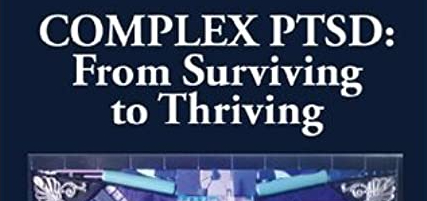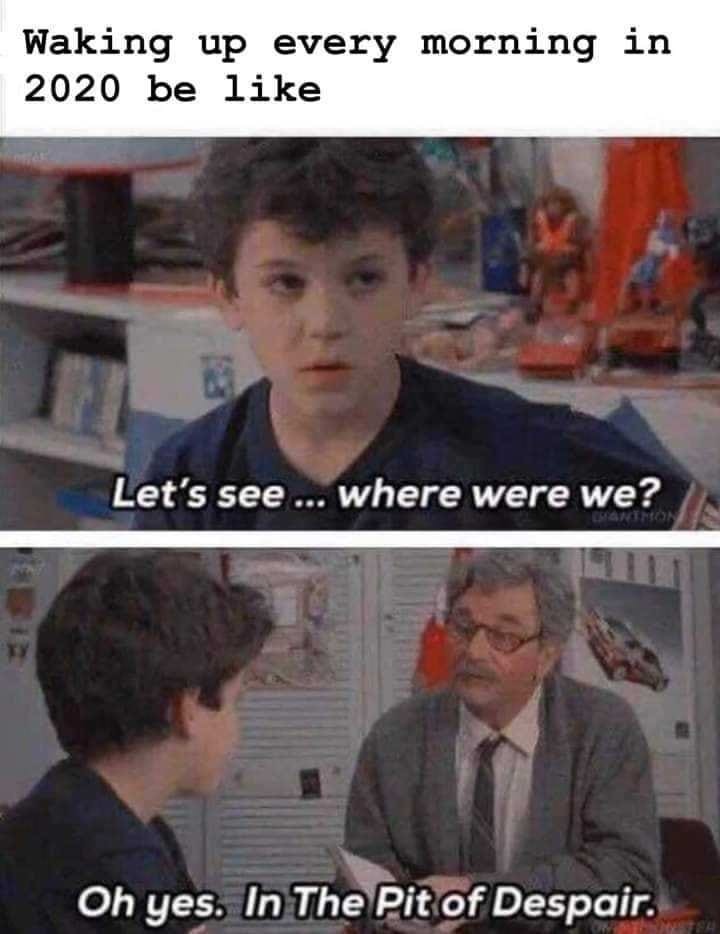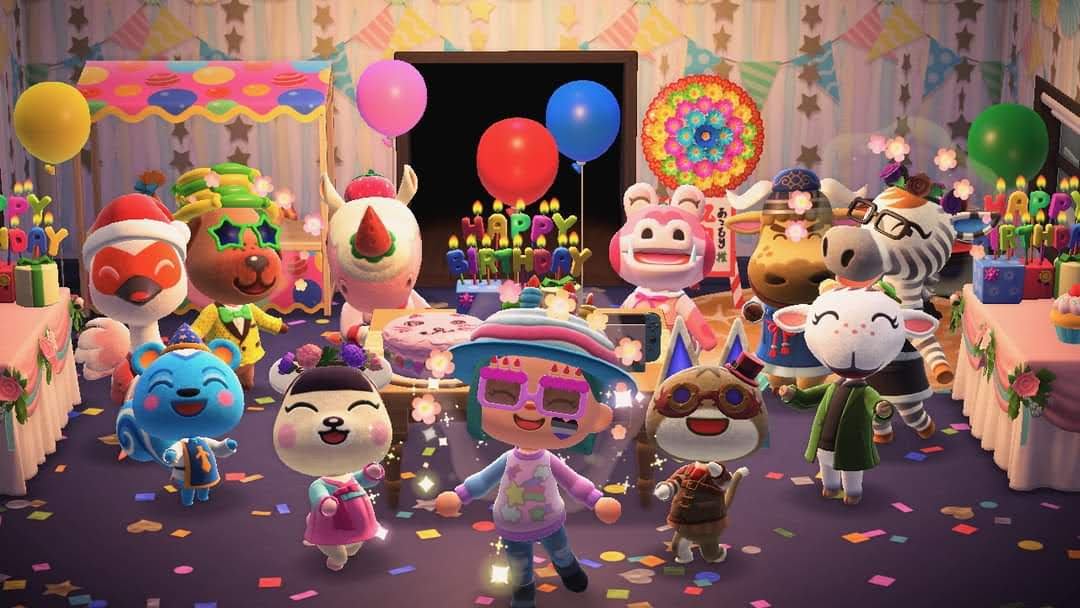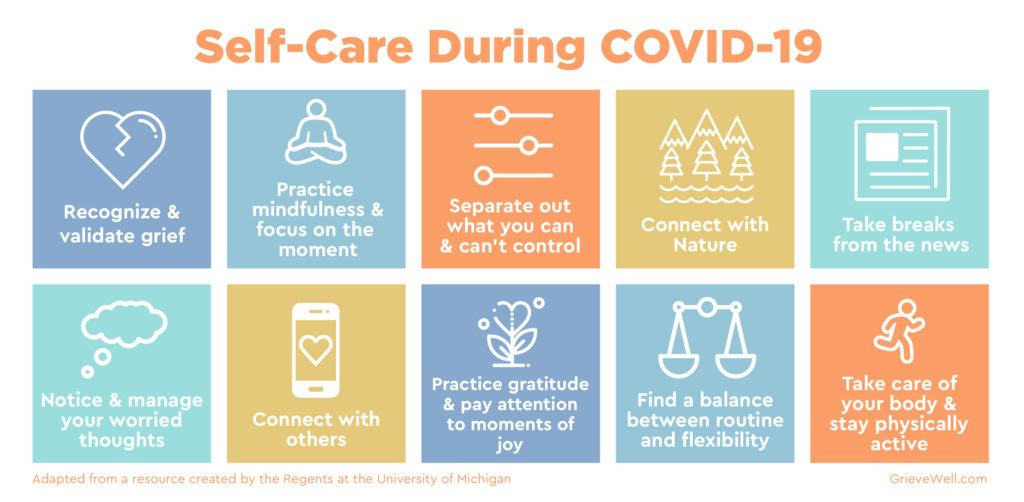TW: sexual assault, abuse. There are NO graphic details, but I don’t want to take anyone by surprise. I hope that those of you who are able will take the time to read this, and those of you who feel you are not will get help with your own trauma soonest. You deserve to heal, too.
In early 2018 I experienced a(nother) sexual assault. I talked about it to some friends, and I pushed it away so I could start my new job. I thought I was going to be ok. Then, in late 2018 and into 2019 I began to experience severe panic attacks. I didn’t recognize them as panic attacks at first. They didn’t present like the typical media depiction of a panic attack. I didn’t even see it as a pattern until the third one. When I started to try to understand what was happening to me, I discovered the role of the amygdala in panic attacks including it’s tendency to shut down the prefrontal cortex (the part of your brain where all your thinking lives). I began to understand that I was experiencing an amygdala hijacking of my brain. I tried a few things to help like grounding and meditation exercises, but what I really needed to do was find out what was causing (and triggering) my panic attacks.
I thought seriously about the events that preceded each one and I discovered that it was happening in response to a feeling of having my clearly stated boundaries ignored and trespassed or of feeling trapped in a painful situation with no escape or relief. I thought more about where this was coming from. Where was it rooted? Triggers are events that involuntarily force us to relive past traumatic events, they aren’t the cause of the feeling, merely the catalyst. I realized that I hadn’t properly dealt with the trauma of my assault. Then in working toward a healing process, I uncovered a larger pile of unprocessed trauma relating to previous assaults and an abusive relationship. Although I had spent some time on each of these, I had never finished processing them, and they still had hooks deep in my subconscious, controlling my involuntary fear response and amygdala hijacking.
In 2019, while trying to work through some ongoing conflict with my mother, her behavior induced another panic attack. In the months that followed, I realized (with much pain) that she was unwilling to take any ownership of her role in our conflict and I imposed a cessation of communication with terms. In simpler language: Because she was unable and unwilling to even try to find a mutual solution, I had to stop talking to her until such a time that she would be willing to engage in healing work. As of this post, she has declined to make the effort. I’m not going to go through all the horrible things. You can think I’m a “bad daughter” or that she is a “bad mother”, but reality is rarely that cut and dry. In the present, I can see that we are two hurt people who (without understanding) sometimes have allowed and still allow our pain to cause us to hurt others. The nature of our relationship has changed from parent – dependent child to parent – adult child, which could allow us to examine, understand, and heal if we both work at it. I am working on that in myself, but I can no longer safely engage with her until she is willing to do the same. I also have to accept that day may never come, and that I have no control over it.
The upshot/side effect of all this is that I was working hard to understand myself, the origin of my trauma and how it was impacting my quality of life and treatment of others by the end of 2019. The advent of Covid-19 and it’s isolating effects have given me a lot of time to read and think. Along the way I have come to understand that it was not only the traumas of assault and abuse I experienced as an adult that were hanging around my neck, but also those of my childhood. I’ve learned a lot about trauma: causes and responses, PTSD/CPTSD, conflict, abuse, toxic behavior, misplaced blame, blame vs responsibility, shame vs understanding, and hopefully … healing. I am by no means finished, but this has been the journey of my last year, and as this is the place I share my travels, I thought I’d write this one too.
I’d like to share a list of the books that have helped me so far, along with a short description of the main ideas each one brought to me. I highly recommend and and all of these book to everyone because even if you yourself are lucky enough to have no trauma, I guarantee you that someone you love is carrying their past around in painful ways, and understanding them may help you both.
(caveat, I read A LOT, and my brain operates on an “absorb information until critical mass causes transmutation of thought” principle, so some of the things that I’ve been thinking/working on are a result of all the things I’ve read, including the 2019 long list of history books, any number of random TED Talks, and the ongoing sci-fi fantasy background reads. I can’t possibly include them all, so this list is very focused on books which I think of as “breakthrough books”)

I did not seek this book for help with my trauma. It was recommended by a friend, and since I’m a teacher, I thought that it was about … education. It turns out to be autobiography of a young woman who was raised in a closed off, survivalist minded, fanatically religious family and her process of waking up to what was happening to her. There’s a lot of baggage that gets shoved onto this. When you read the synopsis or reviews you see a lot of focus on the physical abuse (present but not a dominant theme), or on the nature of the religion itself (Mormonism, but also going to Brigham Young University is what helps her), or the “crazy” things her parents believe. A lot of people react with “how could she not know?” and shut it down, preferring to believe that she is lying or exaggerating or anything other than the idea that an intelligent, well loved, and compassionate person might be unable to recognize abuse when they are stewing in it.
When I read it, I was also curious how she could not know, but instead of dismissing that possibility I tried to actually understand the answer. I knew already going into this book that I had been unable to recognize my “bad” relationship as real abuse until a couple years after I was out, some legal battles, and some therapy. I experienced a lot of shame about it, but I’ve come to realize that it’s actually terrifyingly common for intelligent educated people to become trapped in abusive situations. In Tara’s case, it wasn’t the few instances of physical abuse from her brother, or the content of her father’s beliefs that were the real problem. It was the gaslighting, the control, the neglect and failure to protect.
I was told my whole life what “abuse” looked like and I had been wrong about it in a romantic relationship. Reading Tara’s experience, I knew that the details that happened to us were different, but I began to realize the feelings we had were eerily similar and maybe I needed to take a good hard look at my upbringing. The fact that I was several months into not speaking to my own mother, and many years into an uncomfortable estrangement with my father at the time this book compelled me to have this thought is just more evidence and how good we humans can be at justifying, ignoring, or minimizing the damage caused to us by those we love and who are supposed to love us.

I was unprepared to think about my parents in terms of “abuse”, but I was willing to explore the idea that they had unintentionally damaged me due to their own psychological issues. I was (am) still suffering pretty hard from a pile of trauma related symptoms, and the only way to get at those is to find the roots. I wanted to start trying to understand what had happened to me and how it was affecting my adult life, and I wanted to find some tools to help me communicate with my parents and finally get a healthy, meaningful, and fulfilling adult relationship with one or both of them. This seemed like a good book for that.
The book itself doesn’t focus on what is or isn’t “abuse” which I think was helpful for me where I was. Instead it talks about behaviors that can cause painful feelings and lasting behavioral problems, how to recognize them, how to heal from them, and even how to cope if you are stuck in a situation where you can’t avoid or reconcile with the parent(s) in question. It very much confirmed for me that many of the feelings and thoughts I have that I find damaging are directly connected to my parent’s behavior.
People get hung up on the idea that if you had your needs met, and weren’t being beaten or regularly shouted at/called names, or (worst case) sexually abused as a child, then you are FINE and STOP WHINING. Of course those thing are terrible, and the children who experience them most likely have varying degrees of lasting trauma, and they have very valid feelings of anger. I felt a lot of conflict about coming from a middle class family that provided for me, even above and beyond my basic needs in terms of food, shelter, education, healthcare, and opportunities for creative and intellectual outlet, yet still feeling like there was something wrong, something so bad that it was a dark painful secret I could never talk about, never tell anyone I was hurt from.
This book gave me permission for the first time to acknowledge that what happened was NOT OK. That I (and every child) deserved better. That my feelings were valid, and that my trauma was real. That there are things which happen when a child is totally dependent upon one or two adults for everything in life that do not fit the current social understanding of abuse, and yet do comparable lasting damage which can even be measured with an MRI, or even worse damage because the survivors don’t feel like they can ever get support for their experiences and feelings or even be able to acknowledge the root cause of their pain in later life.
There’s a lot of useful stuff in this book, but one more thing that really dinged for me was the idea of the Healing Fantasy. Dr. Gibson gives some advice on how to interact with such parents after we become adults, and most of it is “avoid/minimize contact”. I really did not want to hear that. I wanted to find a solution. I wanted to fix my relationship with my mother. I missed her and desperately wanted to restore a loving relationship. I needed to know what I could do or say to reach her, to help her, to make things better, and Lindsay told me that I had to let that go. She told me about the Healing Fantasy:

“In addition, [some adult children of emotionally immature parents] are secretly convinced that more self-sacrifice and emotional work will eventually transform their unsatisfying relationships. So the greater the difficulties, the more they try. If this seems illogical, remember that these healing fantasies are based on a child’s ideas about how to make things better. … Their healing fantasy always involves the idea It’s up to me to fix this. What they can’t see is that they’ve taken on a job nobody has ever pulled off: changing people who aren’t seeking to change themselves.”
There was a lot more on the Healing Fantasy, but this was dead on ME, and the book really made me own the fact that I cannot be responsible for healing my mother, or my father for that matter, because they both insist they do not need to change in any way. I cried a lot. I went through a very real grieving process, I had dreams about my mother the way I have done in the past when someone I love has died, but instead of nice conversations and happy times, these were dreams of my mother behaving as she always has, as I now recognized as unacceptable and damaging, and me standing up to it over and over until I wrenched myself awake as if from a nightmare. I suppose it was. I am pretty sure I’ve gone through all the stages of grief about this multiple times (the acceptance doesn’t reliably stick either). It’s slowly getting better, and I couldn’t have started the rest of my healing journey without the “ah hah” moment offered by this book.

Definition of CPTSD as paraphrased from the book:
a more severe form of PTSD, different from PTSD in 5 main features: emotional flashbacks, toxic shame, self abandonment, a vicious inner critic, and social anxiety.
I stopped writing and went back to read this again because it’s just that good. The main things that I got from this book the first time around were the “four Fs” and “emotional flashbacks”. The second time through felt like a deeper layer, a more nuanced understanding. The basic ideas were no longer a shock, I wasn’t fighting against certain healing concepts anymore the way I had been last year. I don’t know if I’ll reread it every year, but I think it should probably go in a not more than 5 year rotation.
The Four Fs are an expansion on the “fight/flight” premise. All humans (and really most animals) have a response to fear or attack known as “fight/flight”, but more extensive study reveals there are 2 more options: freeze and fawn. Most people are familiar with freeze as “a deer in the headlights”, and fawn is when the being feeling in danger sucks up to a bigger stronger threat to placate it or gain protection, perhaps an example in nature can be seen in dogs who grovel to bigger dogs or their owners when they are being scolded. These 4 Fs can manifest in a LOT of ways in humans that are not super obvious, like fight doesn’t have to mean yelling, screaming, punching walls (although it can). It also manifests as narcissism, passive aggression, and controlling manipulation. Flight may look like perfectionism, workaholism, or OCD. Freeze can be lethargy, daydreaming, reading/playing videogames, or even dissociation. Finally, fawn can look like caretaking, people pleasing, co-dependency, or never expressing one’s own opinions/needs. There’s a longer explanation on his website:
http://pete-walker.com/fourFs_TraumaTypologyComplexPTSD.htm
Walker says that every traumatized person is likely to have one dominant trauma response trait, and one secondary. We can all end up using any of the four depending on the situation, and there are HEALTHY manifestations of all 4 as well, but the book focuses on how they manifest in unhealthy ways and cause us lifelong mental and emotional health issues. I personally recognized the freeze behavior in myself in another “get out of my mind’ moment. The author self identifies as a flight type and I wasn’t really feeling any connection to what he was saying. Then he started describing freezers, and I was like, excuse me but you don’t have to call me out like that! It’s still hard, but now I can see what has been happening to me for so long, I can start to make sense of it and to notice it when it happens in the present. My dissociative episodes were incredibly strong when I was a child and teen, to the point that I drifted well away from reality, even having hallucinations and fantastical delusions. I was petrified of going to a doctor because I knew in my very bones that my mother would use any diagnosis to control me forever, and I’d never be free. The farther away from her I got, the more grounded in reality I became, but I’m still missing huge chunks of my memory both from my time in her home, and my time in my abusive relationship because my “freeze” nature caused me to simply check out from as much as I possibly could.
The other huge lighting bolt moment of this book was the revelation of the emotional flashback. Just like soldiers with PTSD have flashbacks to the war, CPTSD sufferers can also have flashbacks. However, where PTSD flashbacks tend to incorporate a visual element (sufferers report being able to see/smell/hear as though they were back in the moment of trauma), CPTSD emotional flashbacks do not have any context. They’re all emotion, no visual cue. It can be impossible to identify what is happening because you simply start to feel a strong and terrible emotion. We often end up linking it to whatever or whoever is triggering that flashback, but it’s not the case. A trigger causes a flashback, causes a (C)PTSD sufferer to relive a past trauma. It happens in the “experiencing” part of the brain instead of the “remembering” part of the brain, so it feels like it is happening right now. So when we feel a strong negative emotion, it can be very easy to say that it was caused by whatever just happened in the present. But the present action is merely the trigger.
I’ve found that some of my triggers are things that will never be “ok” behavior, like “don’t violate my consent”. Someone who ignores my “no” and keeps going is never in the right, but my flashback will cause me to have a disproportionate emotional response that may result in a laundry list of symptoms and could take days to resolve. Other triggers are behaviors that are genuinely innocent in most people but were at one point weaponized against me by an abuser. These are much harder because the person in the present didn’t do anything wrong, but I’m suddenly having a full amygdala hijacking. The thing is, realizing that my feelings, my fear, anger, suicidal ideation, and my inner & outer critic were all results of an emotional flashback and NOT based on real present dangers or attacks was mind-blowing.
In addition, Walker provides a very helpful 13 step list on how to handle an emotional flashback when you realize you’re in one: http://pete-walker.com/13StepsManageFlashbacks.htm
I can’t recommend this book enough. The author is deeply compassionate in his explanations. He offers vulnerability of his own experience, as well as case studies, and references from other psychiatrists whose work focuses on trauma and recovery. There is so much more here like understanding how emotional neglect causes CPTSD, how CPTSD causes us to minimize or deny our own damage if it wasn’t “as bad as” some others, how anger and crying can be used for good, and how we can manage day to day the long process of coping and healing with an appendix full of tool kits.
Please stay tuned for part 2 and more excellent books.
If you are feeling upset, anxious, or find yourself retreating into a trauma response or emotional flashback, please follow Pete Walker’s 13 steps, practice a 5-4-3-2-1 grounding activity, a parasympathetic breathing activity, or other soothing action such as a hot shower, a hug from a trusted person, or a few episodes of your favorite feel good cartoon. Mine is Steven Universe.












